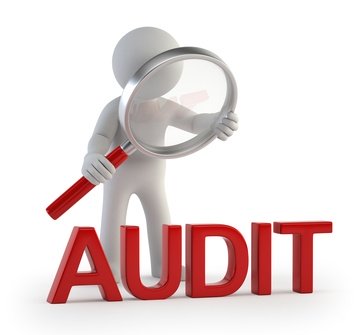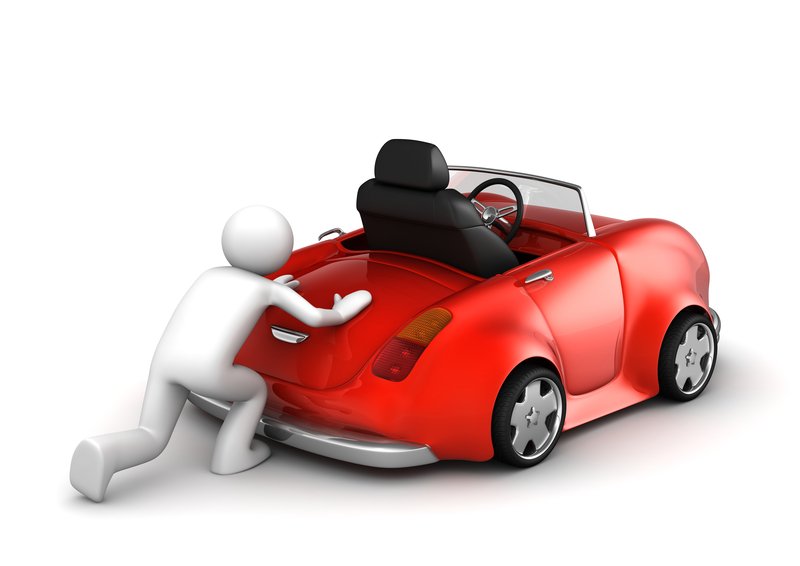
How to Claim Input Tax Credits
Relating to
Business Use of Your Personal Vehicle
Part Three of The Guide to Understanding GST/HST
by L. Kenway BComm CPB Retired
This is the year you get all your ducks in a row!
Quick Links
- Input tax credits for your personal vehicle are tied to CCA
- Class 10 and special rules for Class 10.1 assets
- Sole proprietor/partnership rules
- Incorporated rules
- Corporate reimbursement of personal vehicle expenses
- The company vehicle
- ITCs claimable summary Chart
Let's chat about how to claim input tax credits (ITCs) on the portion of your personal vehicle relating to business use. Warm up your teacup because here we go ...
I have read Stephen Thompson's excellent book "167 Tax Tips for Canadian Small Business 2009". I highly recommend it. It was easy to read and is updated every year.
In the book, he has a section on claiming ITCs on personal vehicles. It's complicated so I thought I'd cover the topic. I hope it helps you out. For me, I'm hoping to have a refresher on how to book the ITCs.
This is not my strongest area ... so please check with a professional before you act on any information presented here. Before I book these types of entries, I sometimes check in with my fellow IPBC colleagues.
If you are a professional bookkeeper or accountant reading this, and I am not understanding this correctly, I would truly appreciate it if you took the time to educate me by sending me a note.
If you are wondering what an ITC is, I explain it in this GST article.
Reminder
Before I begin I would like to remind you there is a difference between information and advice. The information provided in this article or on this site should not be construed as advice. Please make yourself familiar with my disclaimer.
Capital Cost Allowance on Your Personal Vehicle
Booking of your input tax credits for your personal vehicle is closely tied to your capital cost allowance (CCA) claimed on your income tax return ... so we need to take a minute and review how CCA for your vehicle is classified.
Let's Chat About ...
What I now know
The sentence in the above paragraph tells me that I may not be able to claim my ITCs for my vehicle all in one year. The ITCs might have to be claimed on your GST returns over a number of years.
How did I figure that out from that sentence?
Well, if you remember when we were talking about purchases of vehicles and equipment, I mentioned that CCA is tax speak for depreciation. When you hear that term, your ears should perk up ... because it may mean the transaction cannot be expensed but needs to be capitalized and depreciated slowly over the life of the asset ...
... so that tells me that if the booking of ITCs is tied to CCA, it may have to be done over a number of years. There are exceptions.
If your vehicle cost less than $30,000 (before taxes) and was purchased after December 31, 2000, it will be classified for tax purposes as a class 10 asset which has a 30% CCA rate.
There is a tax rule that says you can only deduct 50% of the CCA rate in the first year. (This applies to all classes of CCA.)
So for our purposes, your vehicle will have a CCA rate of 15% (30% CCA rate x 50% first year rule) for the first year.
- Class 10 assets are pooled - group all vehicles in one class 10.
- There is no maximum on the capital cost as all vehicles in this class are under $30,000.
- There is recapture of CCA on disposal but no terminal loss.
If your vehicle is classified as a luxury vehicle by the government (a passenger vehicle that cost over $30,000), you are restricted to claiming $30,000 before taxes. It will be classified for tax purposes as a class 10.1 asset which has a 30% CCA rate.
Special Rules for Class 10.1 Assets
- Class 10.1 assets cannot be pooled - one vehicle only in each 10.1 class.
- There is a maximum on the capital cost.
- There is no terminal loss or recapture on disposal.
- On disposal, 1/2 of CCA is claimed and then the pool reverts to zero. I.E. Your undepreciated capital cost at the end of the year equals nil.
Good to Know
Remember, CCA is a tax deduction based on an accelerated declining balance method and is not GAAP.
The tax treatment of the asset is not necessarily tied to the useful life of the asset.
How something is treated on your tax return is not necessarily identical to how it is treated on your financial statements.
Before I leave this topic I just want to mention that I found learning tax very hard ... the rules are often not logical to me.
My father was a chartered accountant and he used to say to me ... don't try to understand the logic just learn the rules.
So if some of this stuff doesn't make sense to you ... welcome to tax! Take my dad's advice and just learn the rules for now. One day the penny will drop! :0)
If You are a Sole Proprietor or Partnership
General Rules
How to Claim Input Tax Credits on Your Personal Vehicle
Section 202(2) and (4) of the Excise Tax Act deal with the input tax credit of a passenger vehicle owned by an individual or a partnership which implicitly means not a corporation. It's complicated. This only applies to GST/HST registrants.
If you use your personal vehicle for business use and your auto log shows your use is 90% or more for business purposes, then you can claim 100% of your ITCs paid on your GST return ... up to a maximum of $1,500 (5% of $30,000) if your vehicle is classified as a passenger vehicle.
Updated January 2011 - As the $1,500 represents $30,000 x 5% GST, your maximum limit will be your GST or HST rate depending on the province you live in.
You are not eligible for any input tax credit relating to your personal vehicle if your auto log shows your business use to be 10% or less.
If your auto log shows business use is between 10% and 90%, you can claim 5/105ths of the capital cost allowance of the personal vehicle (CCA) claimed in the year. The amount you claim as an input tax credit must then reduce the CCA pool in the next year.
For example:
IF your personal vehicle cost $27,000 after taxes and you use it 40% for business, you would have claimed $1,620 ($27,000 x 15% CCA rate for first year x 40%) CCA on your tax return.
THEN you are allowed to claim $77 ($1,620 x 5/105ths) for your ITCs on your GST return.
NEXT YEAR you adjust your undepreciated capital cost (UCC) by the $77 of ITCs claimed.
Updated January 2011 - If you live in an HST province, your calculation will be dependent on your province's HST rate. For example: 13/113 or 12/112 or 15/115.
Reference: CRA publication RC4022 General Information for GST/HST Registrants > Claiming ITC for capital property (page 20)> Capital personal property (page 20) - see the excellent chart for the rules on claiming ITCs titled "ITCs for acquisition of capital personal property" on page 23.
If You are Incorporated
General Rules
How to Claim Input Tax Credits on Your Personal Vehicle
Sorry, you don't get any ITCs for your personal vehicle. When you are paid your allowance (see chats below), the rate includes / covers things like car wear and tear as well as the sales tax you paid when you purchased the vehicle.
However, section 199(2) of the Excise Tax Act says if your corporate vehicle (the vehicle is registered in the corporation's name not your personal name) has more than 50%* for business use, then the corporation can claim the full input tax credit on your GST return, to a maximum of $1,500 if your vehicle is classified as a passenger vehicle.
Updated January 2011 - The $1,500 represents $30,000 x 5% GST. Your maximum limit will be your GST or HST rate depending on the province you live in.
The corporation is not eligible for any input tax credits relating to the company vehicle if your auto log shows your business use to be 50% or less.
*The ETA uses the words "primarily in commercial activities" which is interpreted as more than 50% for business use by CRA.
Input Tax Credits Claimable Summary Chart
Business Use |
Sole Proprietor ETA 202(2)&(4) |
Partnership ETA 202(2)&(4) |
Corporation ETA 199(2) |
|---|---|---|---|
| Less Than 10% | no ITCs | no ITCs | no ITCs |
| 10% to 50% | see rules | see rules | no ITCs |
| 50% to 90% | see rules | see rules | 100% ITCs to maximum limit |
| Greater Than 90% | 100% ITCs to maximum limit | 100% ITCs to maximum limit | 100% ITCs to maximum limit |
Let's Chat About ...
How Should the Company Reimburse You for Personal Vehicle Expenses When You are Incorporated?
You have three choices.
Option One - An allowance based on business kilometers driven
You are reimbursed by business kilometers travelled each time you submit an expense report. The tax-exempt portion of the rate is set by CRA. There is no need to keep your receipts but you MUST have an auto log to prove your business mileage.
Mr. Thompson recommends you have an employment contract stating the per kilometer allowance.
Option Two - An allowance not based on business kilometers driven
In this instance, the full allowance is then included in your income but you can deduct your actual operating costs. Of course you need to keep all your receipts and an auto log of business mileage is still recommended.
Option Three - If you are on payroll in your corporation, you could also go the Form T2200/Schedule T777 route but it is more paperwork. You will need to keep all your receipts along with an auto log that tracks business mileage as well as a start and end kilometre reading for each calendar (not fiscal) year.
Let's Chat About ...
Who Should Own the Vehicle When You are Incorporated?
Mr. Thompson explains that it is simpler to personally own your vehicle. The benefits of having the corporation own the vehicle have been reduced substantially over the years.
Having the company own the vehicle means taxable benefits have to be T4d and standby charges calculated. Vehicle operating costs paid by the company are also considered a taxable benefit.
Click here to read more about Conferred Shareholder Benefits.
Try to become familiar with how input tax credits for your vehicle are calculated because business vehicle expenses are always reviewed by CRA. The rigid and complex rules make it easy pickings for audit purposes.
I really need to refill my teacup! I always get a little tense when I have to book these transactions because I don't want to get it wrong ... and so it seems it's also true when I just discuss booking them!!! LOL
Bookkeeping-Essentials.ca
Tax Primer For Sole Proprietors in Canada
Click on any image below to go to the Bookkeeping-Essentials.ca article.

See you on the next page ...
Your tutor
Bookkeeping Essentials > Canadian Bookkeeping & Tax Info > Claiming ITCs on Your Personal Vehicle






